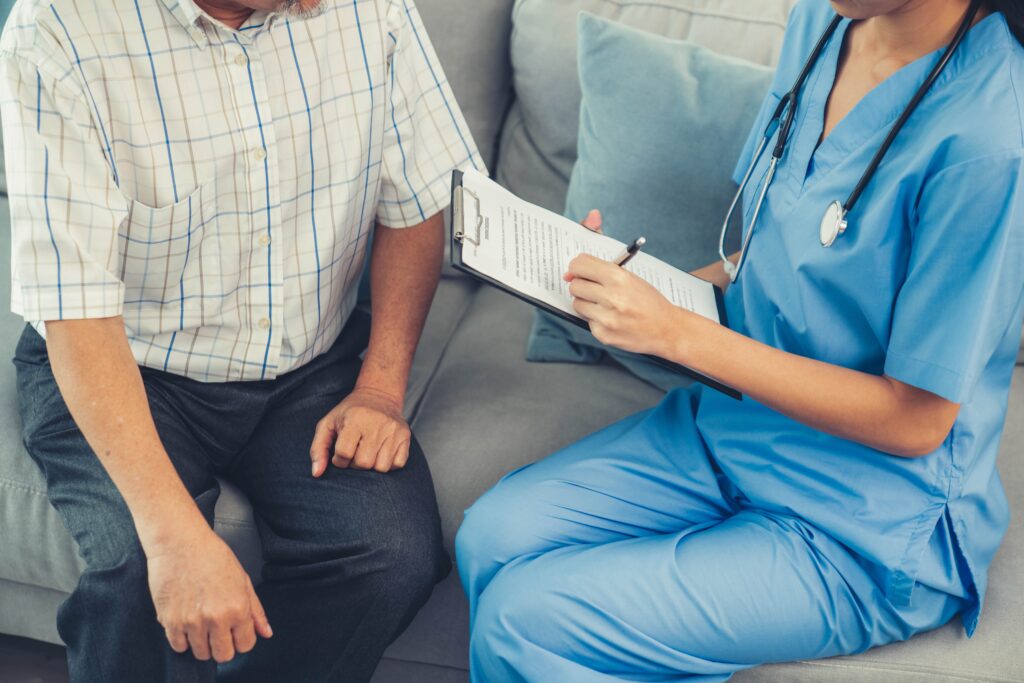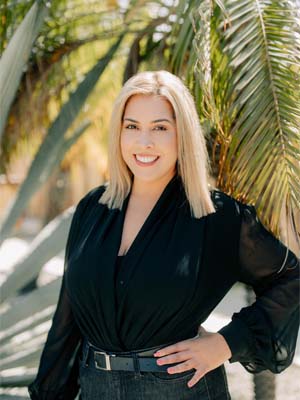Struggling with addiction can be overwhelming. The decision to seek help is the first step toward recovery. However, the detox process can be daunting and intimidating, leaving many people feeling lost and unsure of what happens in detox.
At Pacific Sands Recovery Center, we understand every person has their own story. Therefore, each individual has a unique path to healing and recovery. Our expert team provides personalized care to guide clients through the detox process and toward a healthier, happier life.
What is Drug and Alcohol Detox?
Drug and alcohol detox is a process to help individuals stop using drugs or alcohol and start the recovery journey. It is usually the first step in successful addiction treatment. Detox involves tapering off the drugs or alcohol gradually under medical supervision to minimize and manage withdrawal symptoms. The process also includes emotional support to help individuals cope with cravings and provide tools for avoiding relapse.
Depending on the type of substance used and the severity of one’s addiction, a drug or alcohol detox can last anywhere from a few days to several weeks. During detox, individuals may experience withdrawals which can include physical and emotional discomfort. While detox is not a treatment for addiction itself, it is an important first step in the recovery process. Detox allows individuals to clear their bodies from toxic chemicals and gain better clarity about their situation.

What Happens in Detox at Pacific Sands Recovery?
During the medical assessment, we take a thorough look at the client’s history with substance abuse and any co-occurring dual diagnosis. We use this to identify possible triggers for relapse and form strategies to manage them. Other information that may be gathered includes details about current medications, medical problems, and family history of addiction or mental health disorders.
Everyone is unique and requires an individualized approach to addiction treatment. Therefore, we believe that there is no one-size-fits-all solution for addiction. That’s why we take a personalized approach to detox. We design a personalized treatment plan that works best for each client and their recovery goals.
The assessment also includes lab tests to check organ function, electrolyte levels, and drug levels in the blood. Then, we create a tailored detox plan that best meets the needs of the client. This plan typically involves slowly decreasing doses of medication to help alleviate withdrawal symptoms. Additionally, clients are provided with counseling to help them better understand their addiction and how to manage it going forward.
When clients first enter our center, they’ll be welcomed into a supportive and caring community of people who are motivated to help them achieve and maintain sobriety. We offer private bedrooms to ensure our clients feel at home. Additionally, they receive personalized care and attention in a small and intimate setting. After completing treatment, our community extends to those who have finished treatment with us.
At Pacific Sands Recovery Center, we understand the complexity of addiction and address it from a holistic perspective. Healing the mind, body, and spirit. Our experienced team of professionals provides the most current treatment options available. Together with support from family members and other professionals involved in their care, clients can successfully begin their journey toward recovery during medically assisted detoxification.

Withdrawal Management
The Substance Abuse and Mental Health Services Administration (SAMHSA) defines recovery as, “A process of change through which individuals improve their health and wellness, live self-directed lives, and strive to reach their full potential.” Drug and alcohol detox is an essential first step in the recovery process. It can be a difficult journey as the body struggles to adjust without drugs or alcohol.
Understandably, many people are anxious about what happens in detox and how they will experience withdrawal symptoms. Detox can take several days. During that time, medical staff monitors each client’s progress to ensure their safety and comfort. Our compassionate team of professionals provides emotional support, understanding, and encouragement throughout this challenging transition.
Often, we use medications to manage and lessen withdrawal symptoms ranging from mild to severe. What happens in detox and withdrawal is unique for each client. Moreover, clients need to understand that even if they have gone through detox before, their current experience will be entirely different. Withdrawal symptoms are based on many factors such as the substance of addiction, length of abuse, and amount consumed.
Physical withdrawal symptoms clients may experience during detox include:
- Cravings for the substance
- Nausea, vomiting, diarrhea, abdominal cramps
- Agitation
- Insomnia
- Headache
- Increased blood pressure and heart rate
- Elevated body temperature
- Excessive sweating
- Shaking
- Anxiety
- Depression
- Body aches and pains
Some people may experience more severe withdrawal symptoms including:
- Delirium tremors (DTs)
- Seizures
- Hallucinations
- Suicidal thoughts
- Paranoia
- Confusion, disorientation
Medication-Assisted Treatment (MAT)
Medication-assisted treatment (MAT) is the use of medications in combination with counseling and behavioral therapies. This has shown to be effective in the treatment of alcohol (AUD) and opioid use disorders (OUD) and can help some people to sustain recovery.
There are three drugs approved by the FDA for the treatment of opioid dependence:
- Buprenorphine: This medication is sold under the brand name Subutex among others. It is an opioid used to treat opioid use disorder, acute and chronic pain.
- Methadone: Methadone helps reduce cravings and minimize withdrawal symptoms. It also helps prevent people addicted to prescription opioids from using illicit drugs like heroin.
- Naltrexone: Medication used to treat both AUD and OUD. It prevents the euphoric and sedative effects of alcohol or opioids to reduce cravings.
Other medications that may be used to manage withdrawal include:
Acamprosate: Clients usually take this medication two to three times a day and is used following alcohol withdrawal to help reduce cravings.
Anticonvulsants: These medications minimize the effects of alcohol withdrawal such as seizures and cravings. Commonly prescribed anticonvulsants include carbamazepine, valproic acid, gabapentin, and vigabatrin.
Antidepressants: These medications are used to correct chemical imbalances in the brain that affect mood and behavior.
Anti-nausea Medications: During detox clients may experience nausea and may be prescribed anti-nausea medications such as Zofran, promethazine, or metoclopramide to relieve symptoms.
Benzodiazepines: These nervous system depressants are used to address severe anxiety or insomnia during detox.
24/7 Help Is Standing By
Visit the admissions page at Pacific Sands Recovery today to learn more about drug rehab.
How Long Does Withdrawal Last?
The duration of drug and alcohol withdrawal varies depending on several factors. This includes the specific substance used, the individual’s overall health, the duration and severity of dependence, and any underlying medical or mental health conditions. Generally, withdrawal symptoms begin within a few hours to a few days after discontinuing drug or alcohol use and typically peak within the first week.
The following timelines are general estimates, and what happens at detox may vary from person to person. Additionally, certain substances have more protracted withdrawal periods. In some cases, individuals experience a condition known as post-acute withdrawal syndrome (PAWS). As a result, mild withdrawal symptoms persist for weeks, months, or even longer after the acute phase.
Ultimately, if someone is struggling with addiction and considering withdrawal, they should seek professional medical help. Medical supervision and support help manage the withdrawal process and minimize potential complications.
At Pacific Sands Recovery Center, we can explain in further detail what happens in detox according to each individual’s situation.

Alcohol
Withdrawal symptoms usually start within 6-24 hours after the last drink. The first stage may include tremors, anxiety, nausea, and insomnia. Within 24-72 hours, more severe symptoms like seizures, hallucinations, and delirium tremens (DTs) may occur. The acute withdrawal phase typically lasts about a week, but some milder symptoms may persist for weeks or months.
Benzodiazepines
These medications are prescribed for anxiety and sleep disorders. Withdrawal can begin within 1-4 days after the last dose, and symptoms may include anxiety, insomnia, irritability, sweating, and muscle aches. Acute benzodiazepine withdrawal can last several weeks, but some symptoms may persist for months.
Opioids and Opiates
Withdrawal from opioids like heroin or prescription painkillers often starts within 6-12 hours after the last use. Early symptoms may include anxiety, muscle aches, and insomnia. Followed by later-stage symptoms like nausea, vomiting, diarrhea, and intense drug cravings. Acute withdrawal typically lasts about a week. However, some symptoms such as cravings and mood swings may persist for an extended period.
Stimulants
Withdrawal symptoms from stimulant drugs can appear within a few hours to a few days after stopping use. Common symptoms include fatigue, depression, increased appetite, and disturbed sleep patterns. The acute withdrawal phase may last for several days or weeks, with some individuals experiencing more prolonged symptoms.
Learn More About What Happens in Detox at Pacific Sands Recovery Center
At Pacific Sands Recovery Center, we’re committed to delivering compassionate and personalized care to help our clients overcome their addictions and achieve long-term recovery. Our expert team is uniquely qualified to address the complex nature of substance use disorders and dual diagnosis. We utilize a mixture of evidence-based methods to help guide clients toward a healthy and positive lifestyle. If you or someone you know is struggling with addiction, don’t hesitate to reach out to us and take the first step toward healing and recovery.
Contact us today to learn more about what happens in detox for your unique situation.

